The National Asian Culture Center's 10th Anniversary Special Exhibition Manifesto of Spring International Symposium
In anticipation of “Manifesto of Spring,” a special exhibition commemorating the 10th anniversary of the National Asian Culture Center (ACC) in 2025, an international symposium will be held to facilitate in-depth research on the exhibition’s themes and foster discussions on artistic practices.
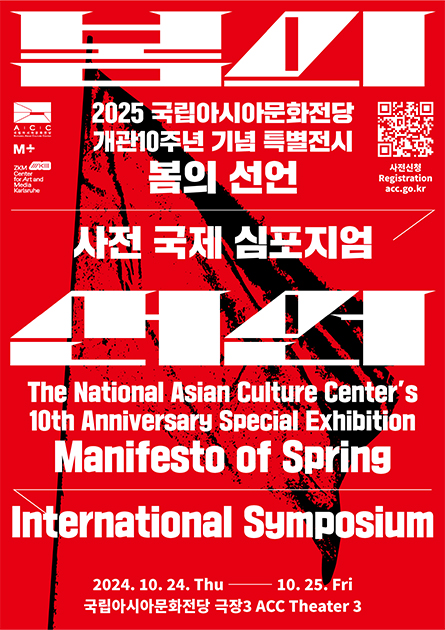
- Date2024.10.24.(THU) - 10.25.(FRI)
- TimeTHU 13:00-17:30
FRI 10:30-18:30 - PlaceTheater 3
- Age LimitAll citizens
- Seating230
- Price Free
- TicketOnline Preregistration
- Contact+82-1899-5566
Introduction

Asian nations that have achieved democracy through social and political upheavals in modern history now face a new era. The symbol of spring, once a representation of the aspirations for democratization, has withered like a flower, and the global environment has been transformed into an exploited ecosystem in the name of economic globalization. The spring of Gwangju has become a silent spring that may never return. Now, we aim to detect the strategies and methods of capitalism beyond this lost spring and explore alternatives and practices in life and art.
This symposium features two central key themes.: The first is presented by Anna Tsing, author of the book The Mushroom at the End of the World, who examines capitalist value systems through the lens of wetland ecosystems and offers new possibilities for life. Following this Jason W. Moore, a key figure in world-ecology theory, who coined the concept of the "Capitalocene as a complement to the Anthropocene, will provide his insights. Furthermore, domestic and international artists and scholars will review the latest discourses on these themes, along with new artistic approaches. Partner institutions of Manifesto of Spring, ZKM | Center for Art and Media Karlsruhe and M+ Museum, will share their perspectives and experiences through roundtable discussions, presenting outlooks for the upcoming exhibition. Art, by nature, is combative. It challenges established orders and offers new perspectives on the world. Art is also a collective expression of many solidarities. A work of art is itself a multi-species world, created by both humans and non-humans. Manifesto of Spring seeks to invoke a new spring through the struggles of life and solidarity across species. And spring has never truly been lost.
Introduction to Partner Organizations
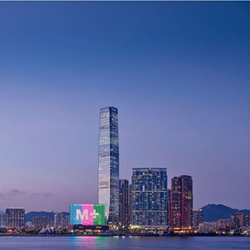
-
M+M+ is a museum dedicated to collecting, exhibiting, and interpreting visual art, design and architecture, moving image, and Hong Kong visual culture of the twentieth and twenty-first centuries. In Hong Kong’s West Kowloon Cultural District (WestK), it is one of the largest museums of modern and contemporary visual culture in the world, with a bold ambition to establish ourselves as one of the world’s leading cultural institutions. M+ is a new kind of museum that reflects our unique time and place, a museum that builds on Hong Kong’s historic balance of the local and the international to define a distinctive and innovative voice for Asia’s twenty-first century.
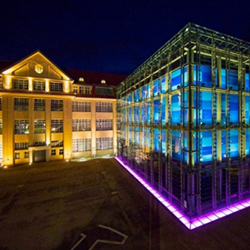
-
ZKMFounded in 1989, the ZKM | Center for Art and Media Karlsruhe stands worldwide for an open concept of art in the digital age. Here, art collecting and archive research are linked with artistic research on the electronic arts. Through these interdisciplinary connections, ZKM not only presents milestones of 20th and 21st century media art, but also contributes to its further development. Whether exhibitions, symposia, publications, concert programs, or digital formats – ZKM is the platform for the discourses of art and technology in exchanges with society, science, business, and politics. Their mission is to investigate and better understand the effects of the media and digital world on us humans.
Full Schedule
| Time | Min | Title | Speaker | Moderator |
|---|---|---|---|---|
| 12:30 | ’30 | Registration | Kim Jiha (Senior curator of ACC) |
|
| 13:00 | ’5 | Opening | ||
| 13:05 | ‘5 | Welcoming Speech | Lee Kanghyun Director of ACC |
|
| 13:10 | ‘5 | Congratulatory Message 1 | Suhanya Raffel M+, Director |
|
| 13:15 | ’5 | Congratulatory Message 2 | Alistair Hudson Scientific Artistic Director of ZKM Center for Art and Media |
|
| Session 1 Discovering Biodiversity at the End of the World | ||||
| 13:20 | ‘60 | Keynote Swamp Life |
Anna Tsing Anthropology, University of California, Santa Cruz; and Professor, Aarhus University * Online |
Noh Gowoon (Dept. of Cultural Anthropology and Archaeology, Chonnam National University) |
| 14:20 | ’30 | Q&A | ||
| 14:50 | ’10 | Break | ||
| 15:00 | ‘30 | Ecofeminist Hedonism and the Politics of Inter-species Relationships | Hwang Jooyoung Ecofeminism research center 'Moon and Trees' researcher |
|
| 15:30 | ‘30 | terra0 - evolving prototype | Paul Seidler terra0 |
|
| 16:00 | ’30 | Together with Beot | Jieun Cho Ikibawikrr |
|
| 16:30 | ’40 | Q&A | ||
| 17:10 | ’5 | Closing | Kim Jiha (Senior curator of ACC) |
|
| Time | Min | Title | Speaker | Moderator |
|---|---|---|---|---|
| 10:00 | ’30 | Registration | ||
| 10:30 | ‘5 | Opening | Kim Jiha (Senior curator of ACC) |
|
| Session 2 Revealing the strategy of Capitalocene | ||||
| 10:35 | ‘60 | Keynote Democracy in the Web of Life: Against the Anthropocene of the Rich |
Jason W. Moore Professor, Dept. of Sociology, Binghamton University |
Park Sun-Hee (Professor, Dept. of Media and Communications, Chosun University) |
| 11:35 | ’30 | Q&A | ||
| 12:05 | ’85 | Lunch | ||
| 13:30 | ‘30 | Climate/Asia: Carbon colonialism and community as Asia | Seo Dongjin Associate Professor, Department of Intermedia Art, Kaywon University of Art and Design |
|
| 14:00 | ’30 | Anthropocene Survivalism: Survival as Public and Kenosis | Kim Hong Jung Professor, Department of Sociology at Seoul National University |
|
| 14:30 | ’30 | Art or the silence of the Chaos (The undifferentiated Wholistic Composition of All Things) |
Soun-Gui Kim Artist |
|
| 15:00 | ’40 | Q&A | ||
| 15:40 | ’10 | Break | ||
| Session 3 Art and Multispecies world-making (New World) | ||||
| 15:50 | ’40 | Hive Wisdom: Nurturing Collective Intelligence through Care | Leonhard Bartolomeus YCAM / part of ruangrupa |
Jung Hyun (Professor/Art Critic, Dept. of Visual Arts, Inha University) |
| 16:30 | ’30 | Q&A | ||
| 17:00 | ’60 | Roundtable: On the Exhibition Manifesto of Spring | Kim Jiha, Lim Liwon Senior Curator, Curator of ACC |
|
| Silke Schmickl Channel Lead Curator of M+ |
||||
| Alistair Hudson, Clara Runge Scientific Artistic Director, Curator of ZKM |
||||
| 18:00 | ’20 | Q&A | ||
| Closing | ||||
| 18:20 | ’5 | Closing | Kim Jiha (Senior curator of ACC) |
|
Participants
- (Session 1) Discovering Biodiversity at the End of the World
- Moderator Noh Gowoon (Dept. of Cultural Anthropology and Archaeology, Chonnam National University)
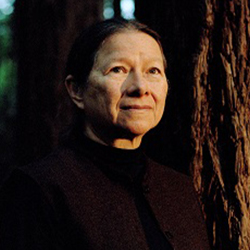
-
Keynote Swamp LifeAnna Tsing
- Anthropology, University of California, Santa Cruz; and Professor, Aarhus University
*Live participation from the United StatesView Profile +
The swamp is a denigrated place: a place known mainly as ugly wasteland: pestilent, useless, and fit only for draining. Might a “celebration of spring” instead take us to the pleasures and possibilities of swamp living? Draining swamps has been a signature move of the capitalist modernity that has squashed the spring. If we mean to revalue nature for its life-giving characteristics, a good place to start is the swamp.
Modern authorities have been so obsessed with draining swamps that even scholars have forgotten to consider multispecies livelihoods in the swamp. Even scholarly celebrations of refugees living hidden in swamps, from maroons to guerrillas, tend to suggest that swamp life is miserable even when it is politically important as a site of resistance. Most accounts suggest that everything important for survival must be brought in from outside. This talk instead considers the richness of swamp living—especially in areas where the quintessential swamp plant, sago, flourishes. Besides sago, swamp infauna, especially mollusks, can be diverse, nutritious, and easy to obtain without complex technologies—as long as foragers are willing to get muddy. Offering material from in-process ethnographic research on the west coast of Papua and adjoining islands, this talk explores what it means to live with swamps, and even, perhaps, to encourage and spread them.
- Researcher, Ecofeminism Research Center 'Moon and Trees'
In an era of various social crises, including the climate crisis, are intensifying, transitioning the social system requires thematizing the desire for a better life beyond bare survival. This presentation examines the political implications of ecofeminist hedonism. Desire as the “power to connect” becomes the basis of new inter-species relationships and social relationships—this is at the foundation of ecofeminist hedonism.
- Artist
For the past nine years, terra0 has been exploring critical questions around land ownership, ecosystems, and the conception of nature. Our work focuses on how legal concepts such as personhood, property and subject influence the human-nature relationship, and how new forms of interaction could emerge through decentralized, democratic land management. While blockchain technology plays a significant role in organizing collectives, its true transformative potential is still under investigation. In this talk, we will showcase some of terra0's key projects and link them to our current initiatives.
- Artist
“Together with Beot” aims to explore the concept of companion (beot) through the works of ikkibawiKrrr, such as Tropical Story (2022), Seaweed Story (2022), and Diving Is with Companion (2021, in collaboration with Jeju Dance Arts Centre and Hadori Village Association). The divers (haenyeo) sow, cultivate, and harvest in the sea. Their work in the sea is not hunting, but farming. The divers consider each other as a companion, and they can survive in the sea because they are connected. This is what it means to dive with a companion.
- (Session 2) Unveiling Capitalocene Strategies
- ModeratorPark Sun-Hee (Professor, Dept. of Media and Communications, Chosun University)
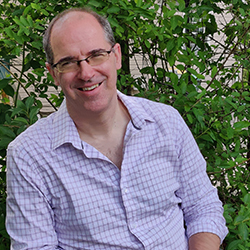
-
Keynote Democracy in the Web of Life: Beyond the Anthropocene of the RichJason W. Moore
- Professor, Dept. of Sociology, Binghamton University
View Profile +
The new climate consensus is emphatic and clear: the climate crisis is going to kill us, unless… we bend the knee to the masters of the universe: the billionaires and their professional cadres. The recent amplification and proliferation of “existential threat” rhetoric – a staple of the Environmentalism of the Rich since the 1950s – is a precious clue to the coming century’s ideological struggles and class wars. Weaving together the promotion of a mass politics of fear with promises of a climate fix, we’re told there’s “no time” for democratic solutions. We live in a “climate emergency.” The marriage of virtuous Environmentalism, Good Science, and anti-democratic politics was at the core of early Malthusian ideology. The bottles may have changed, but not the wine. The two moments, the fear and the fix, are deeply rooted in capitalism’s Civilizing Projects, its managerial dualism of Man and Nature, and Environmentalism’s contempt for democracy and the producing classes. Its fantasy, underwritten by fearmongering to replace positive vistas of capitalist development, is a political program of technocratic and techno-scientific dystopia – a Brave New World for the super-rich and their urban-professional cadres; a 1984 for everyone else. If most of the academic left rejects the fix, they have accepted the fear – and so have the movements. Enabled by its flight from history, the fantasy obscures the real grounds for optimism in the present conjuncture: climate crises, for the past two millennia, have been bad for ruling classes. They are moments of political possibility for the popular classes.
- Associate Professor, Dept. of Intermedia Art, Kaywon University of Art and Design
The climate crisis is a crisis on a planetary level. However, the Earth is also the terrain where world history unfolds. Modern world history is a history of colonial violence, plunder, and exploitation, as well as uneven development. We look at the distressing history of Asia where carbon colonialism unfolded. During the Pacific War, Japan invoked “Asia(nism)” to navigate the precarious antinomy of decolonization and colonization while attempting to build an oil empire. We seek to tackle this relationship between the climate crisis and Asia.
- Professor, Dept. of Sociology, Seoul National University
From the perspective of traditional philosophical thinking, survival has been criticized as the pursuit of the bare life (zoe) by private individuals. The advent of the Anthropocene and new perceptions of Gaia inevitably bring new perspectives to the issue of survival. In this presentation, I explore the semantics of new survival from two perspectives, namely the possibility of Anthropocene survivalism. My first thesis is that survival is not private, but public. This will be examined through Kant’s “public” and Mizoguchi Yuzo’s concept of “living people” (生民). Second thesis is that survival is not conatus, but kenosis. Survival can no longer be achieved through the expansion of the organism’s existence or the exclusion of others, but rather through self-emptying.
- Artist
Through the proposition of art or primordial silence, I will question the meaning of art as it appears in Eastern philosophical thought. In particular, I will examine the aesthetic theories of Zhuangzi (Chuang Tzŭ, 莊子) and Shitao (石濤). I will use this opportunity to reflect on how traditional Eastern philosophical thought in Asia finds similarities to some of the contemporary movements in Western theory emerging on the western continent.
- (Session 3) Multispecies World-Making through Art
- Moderator Jung Hyun (Professor/Art Critic, Dept. of Visual Arts, Inha University)
- Curator, YCAM / part of ruangrupa
The 1998 crisis in Indonesia led to the rise of collectives like ruangrupa, founded in 2000, transforming contemporary art with a collaborative, market-resistant ethos. Their direction of Documenta 15 spotlighted the "Lumbung" approach—communal, inclusive, and resource-sharing. This presentation delves into ruangrupa's strategies and the potential of collaboration through care principles and collective artistry.
- Kim Jiha (Senior Curator, ACC)
- Lim Liwon (Curator, ACC)
- Silke Schmickl (CHANEL Lead Curator, Moving Image, M+ Museum)
- Alistair Hudson (Scientific Artistic Director, ZKM | Center for Art and Media Karlsruhe)
- Clara Runge (Curator, ZKM | Center for Art and Media Karlsruhe)
Place Info.
ACC Theater, Theater 3
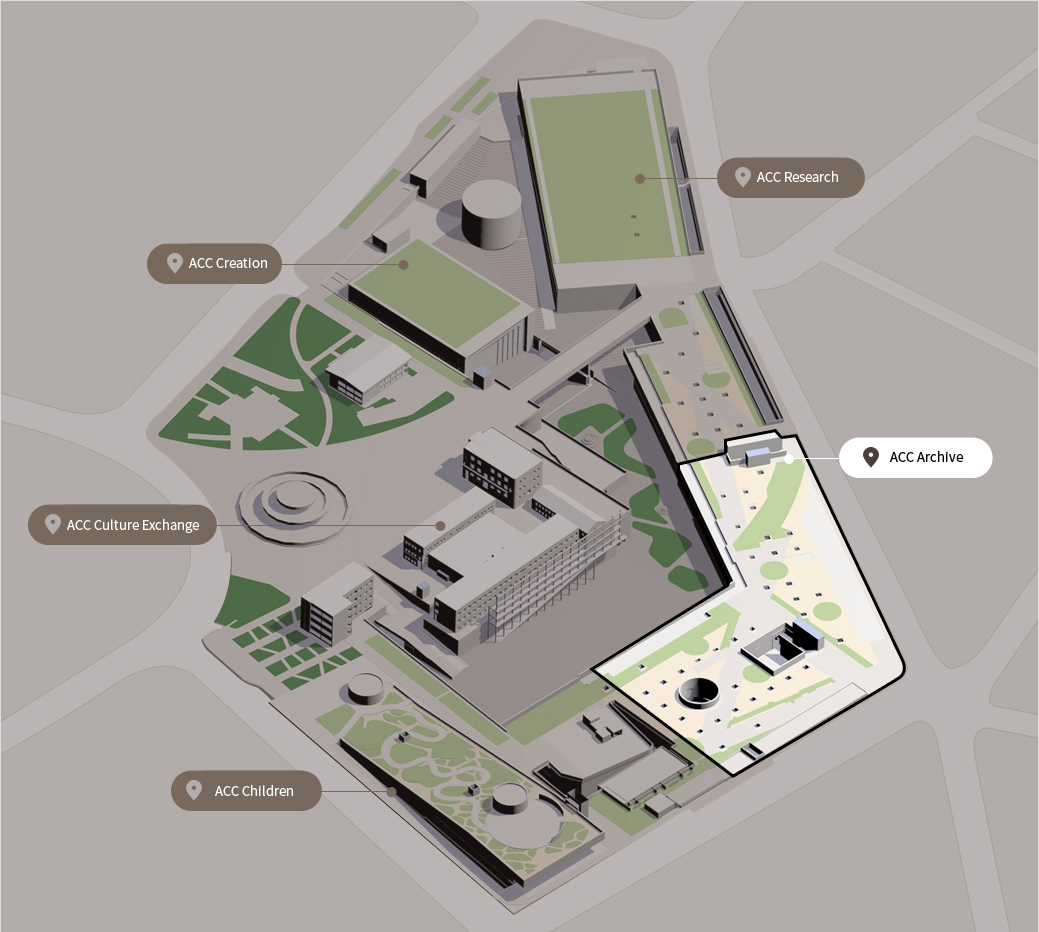
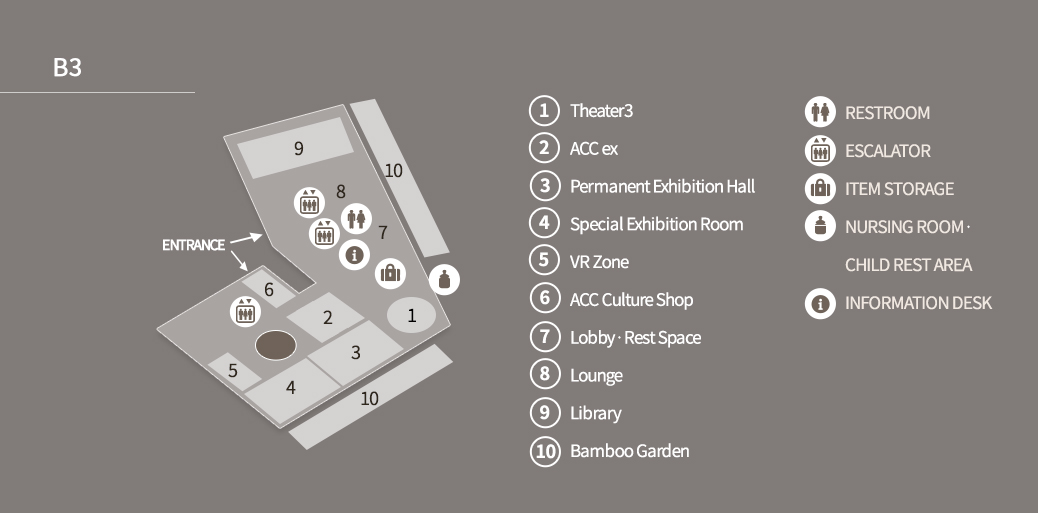
01/


